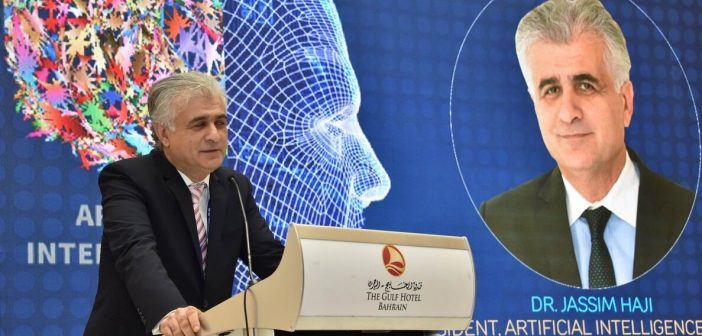Dr. Jassim Haji is the chairman of the International Group of Artificial Intelligence (IGOAI), and a researcher in technology and AI. With over three decades of experience in the aviation, hospitality, technology, and telecommunications sectors, Dr. Haji has been instrumental in implementing some key innovations at Gulf Air’s IT systems and processes. The Integrator engaged Dr. Haji in a holistic discussion on AI in different industry verticals.
Briefly explain the role of IGOAI and its missions
International Group of Artificial Intelligence (IGOAI) was established in 2021 to create global awareness about artificial intelligence (AI). The community involves academics, students, CIOs, members of global AI associations, and professionals who engage with AI from over 24 countries. IGOAI is one of the fast-growing non-commercial communities that currently has around 450 members and we are expecting over 1200 members joining in it by the end of 2022.
We disseminate learning about AI through global summits and conferences by articulating potential algorithm-based biases, security gaps, and other key areas that need feedback and scrutiny. We have conducted major conferences with key representations of ministers of justice (GCC), public prosecutors, parliamentarians, women, and people of several walks of life. Besides giving them fair chances to share their AI experience, we keep them educated about several aspects of the technology.
How well do you think AI will be used in various sectors in the post-pandemic era?
We had conducted a study in the pre-pandemic days and predicted a drastic growth in the use of AI, digital transformation, and other futuristic technologies by 2025. The pandemic had fast-tracked its implementation and growth.
The customer service segment of various verticals such as healthcare, banking, education, sports, etc. would likely witness major growth in the post-pandemic era. AI-powered chatbots and conversational automation technologies can play vital roles in customer service whereas robotic lecturers take over the education segment.
How do you react to the use of AI in healthcare industries during the pandemic?
Apparently, the use of AI in healthcare wasn’t adequate and much less compared with commercial verticals especially in modern societies, such as the United States, China, and Europe. Had there been the modern technologies used efficiently in hospitals, research labs, patient care units, and drug development centers earlier, we could have saved many lives that the COVID-19 pandemic claimed.
What impact AI could create in financial and e-payment segments?
AI can be used to improve the speed and efficiency of the payment process by reducing the extent to which humans need to be involved, especially the developments in speech recognition technology. Through which banks can increasingly process payments initiated via voice, where the initiator uses a smartphone or smart speaker in addition to chatbots.
What is the scope of AI in the aviation sector?
AI can be sued effectively in several areas of aviation, specifically in airlines, such as revenue management, crew management, fuel-efficiency optimization, inflight sales, airplane ?maintenance, and air safety.
Do you see the significance of AI in manufacturing and logistics verticals?
AI is most commonly applied in manufacturing to improve overall equipment efficiency (OEE) and first-pass yield in production. Over time, manufacturers can use AI to increase uptime, improve quality and constancy, which allows for better forecasting. In ?logistics, it can be used for collecting and analyzing information and inventory processes, enabling companies to increase efficiency and boost revenues in warehousing.
What hospitality industries could achieve by involving machine learning?
It can be used for in-person and customers within hospitality, such as chatbots, virtual ?assistance, and guest data analysis with predictions.
Like some others, do you anticipate job loss and employment crisis after a vast implementation of AI in several industries?
There will be certainly many jobs lost in the next five years, but equally, there will be the creation of new jobs and also different job functions to accommodate new generations and specifically those that are tired of AI.


 Intelligent Assistants, Robot Teaches, and More; AI Hints Exceptional Future
Intelligent Assistants, Robot Teaches, and More; AI Hints Exceptional Future